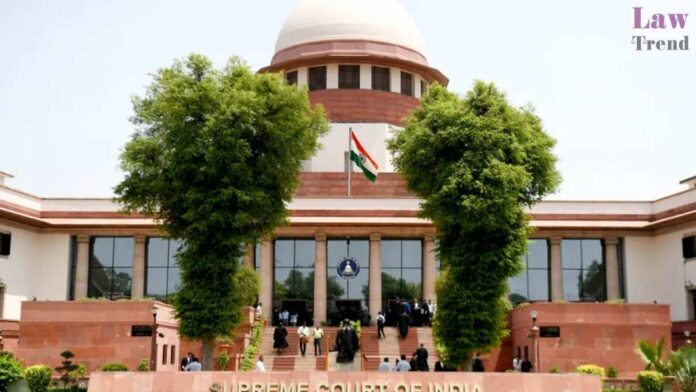In a significant ruling, the Supreme Court of India has dismissed a plea seeking early delimitation of assembly constituencies in Andhra Pradesh and Telangana, citing a constitutional freeze under Article 170 that prohibits any such exercise until after the first census conducted post-2026.
A bench led by the Supreme Court made it clear that the increase in legislative seats envisaged under Section 26 of the Andhra Pradesh Reorganisation Act, 2014, cannot override the constitutional embargo. The Court underscored that no direction can be issued to the Election Commission of India or the Union Government to initiate the process at this stage.
Background: What the Petition Sought
The petition called for immediate implementation of Section 26(1) of the 2014 Reorganisation Act, which proposes increasing assembly seats from 175 to 225 for Andhra Pradesh and from 119 to 153 for Telangana.
The petitioner argued that despite the passage of over a decade, the Centre and the Election Commission failed to act on this provision, depriving the people of both states of fair and proportionate representation. The petition further referred to the delimitation exercise in Jammu & Kashmir as a precedent.
Centre’s and ECI’s Stand: Constitutional Freeze is Binding
In response, the Union Government and other respondents relied on Article 170(3) of the Constitution, which—as amended by the 84th Constitutional Amendment Act, 2002—freezes delimitation in all Indian states until after the first census post-2026.
They argued that a statutory provision cannot supersede the Constitution, and that the Jammu & Kashmir delimitation was a unique case, conducted under specific provisions of the Jammu and Kashmir Reorganisation Act, 2019, which do not apply to any other state.
Supreme Court’s Observations: Constitution Trumps Statute
The Court agreed with the Centre’s arguments, holding that constitutional mandates take precedence over statutory enactments.
“Section 26 of the Reorganisation Act is not an island unto itself; it must be read in concert with the overarching constitutional scheme,” the Court said, emphasizing that Article 170(3) clearly postpones delimitation until after new census data is available post-2026.
Rejecting the analogy with Jammu & Kashmir, the bench held:
“The J&K delimitation was a singular exercise under the 2019 Reorganisation Act. It does not provide a general precedent applicable to states governed by Article 170.”
The Court also reiterated that the constitutional freeze aims to encourage population control efforts by preventing states with better demographic management from losing legislative representation.
Verdict: Petition Dismissed, Delimitation Only After 2026 Census
The Supreme Court ultimately dismissed the petition as meritless, affirming that no delimitation or increase in assembly seats for Andhra Pradesh and Telangana can take place before the post-2026 census. It clarified that Section 26 of the 2014 Act will become operative only in consonance with the constitutional timeline.




